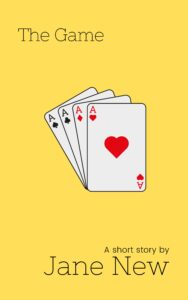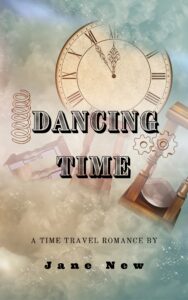 The Game of Cribbage
The Game of Cribbage
Let me tell you a story about a Game. The game was cribbage. It’s a card game, and you use a wooden board to keep score. Thirty points a street for four streets, and one more to get home.
But it doesn’t matter if you don’t know the rules, the story’s a good’un anyway.
This happened thirty, no, must be forty years ago, could be more, up in the Hunter, north o’ Sydney. The grapes had finished for the year, but it was still bloody hot. The pub was a miner’s pub in one o’ those little towns near Cessnock. I’d dropped in to see a few mates, I used to live there once. Nothing had changed.
Until The Redhead walked in the door.
She wasn’t local, I would’ve remembered her. Long, long legs poured into tight, tight jeans, and I suppose a few more buttons on her blouse could’ve been done up, but there wasn’t a man in the place who was complaining.
And the hair, you should’ve seen the hair! The women all said the colour couldn’t be natural, but who cares? It was red, red like a sunset when there’s a bushfire on the other side of the hills. And it was long, curling and twisting all the way to the waistband of her jeans.
Her game was cribbage, six cards a hand, two in the crib, twice around the board.
“What’re we playin’ for, love?” they’d ask, as they took their seats at the table.
“We’ll discuss it when you win,” she’d answer as she cut the pack. “Aces low, high has it.”
It didn’t matter who won the cut, she was unbeatable. She came in every Friday night for weeks, and every Friday night they’d line up to play her. No-one knew where she came from, no-one knew her name.
No-one could stand against her.
Many tried and enjoyed nothing more than a brief half hour across the table from that wonderful cleavage.
Old Kimball nearly made it, but he died in the very last hole. They thought he was going to have a heart attack, and the ambos carried him out on a stretcher. After all, he was nearly eighty.
The reigning champion, Rob, didn’t stand a chance. After a few good hands he wilted and chucked it in when she was two streets ahead.
And so her reputation grew. Every Friday night someone would challenge The Redhead to a game. It became a tradition. It was a small town, and soon most of the men had already played her and lost. (The wives and girlfriends pretended disinterest and turned back to their white wines.)
Then young Richard came home for the first time in two years. He’d been up north, near the Gulf, and lobbed in late on the Thursday night. Friday he thought he’d check out the pub for a few of his mates.
As soon as he walked in the door he saw her, you could tell. No-one could miss that curling mass of rich, red hair, like the girl on the box of matches.
He talked to a few people, he listened to the stories, and he heard about the Game.
She must’ve noticed him, all the girls did. Most of the women in the town would’ve melted into his arms given the chance (the word was, quite a few of them already had), and you couldn’t really blame them. His body was all sinew and muscle, like a well-bred greyhound. He smiled often. I always suspected that was the secret of his success with the ladies.
She shuffled the pack.
He took it, threw it in the trough at the foot of the bar, and called for a fresh deck.
He shuffled.
They cut.
He dealt.
People were six deep around them by the time they both cornered the home street, two points apart, young Richard in the lead.
He pegged ten points.
She pegged twelve.
She scored sixteen in her hand. They watched her – five points, another five, another five, and one.
But it was his crib.
He had twelve in his hand, and five points to go.
There were six points in his crib.
* * * * *
They say the smile didn’t leave his face for a month, but I can’t say for sure, because I headed home the following week.
I hear Friday nights without The Redhead just aren’t the same.
There’s only one more thing I’ve got to say: why would anyone put a five and a queen in her opponent’s crib?
The End
(This story is dedicated to my grandmother, Edith Cliff, who taught me how to play crib when I was five years old. Thanks, Nan!)
(c) Jane New 2024
If you’d like to learn how to play this fascinating and unique game, I recommend this website.
Back to the home page.
A sneak preview of my time-travel romance “Dancing Time”, out soon on Amazon.
 Chapter One
Chapter One
“Your coffee, miss.”
Rachel’s thoughts were focussed on the sepia-toned photo on the table in front of her. She looked up at the server, confused for a moment.
“Oh, thanks!”
Propping the photo against the salt and pepper shakers in the centre of the table she mindlessly spooned several teaspoons of sugar into the white china mug and stirred the drink.
“You want anything to eat?” asked the server.
“No.” She wanted to study the picture, not eat. “No, thank you. This will be fine.”
Pushing the steaming mug to one side she concentrated on the photograph. The man would have been in his mid thirties, she guessed, perhaps ten years older than she was now. Dark hair, carefully parted and brushed to one side, curled around his ears. He was clean shaven, with a well-defined jawline and a finely moulded mouth. His eyes were a light colour—grey or blue or hazel, it was impossible to tell. A high, stiff-looking collar ensured he held his pose for the camera. A softly knotted, striped, silk tie complemented a buttoned up waistcoat and a smartly tailored jacket with satin lined lapels.
What colour were his eyes? Rachel wondered.
She reached for her coffee. She needed it, she realised, as the caffeine registered. She’d barely eaten since leaving Hobart late that morning.
The brown, cardboard frame bore the photographer’s imprint and a year: Wm. Simmondson, Zeehan, Tasmania 1898. And on the back, scrawled in pencil and barely legible, was another name: G. Lewis.
What did the G. stand for?
Gordon perhaps, like the river? Graeme? Garry? What names were popular in the eighteen sixties, when he would have been born? Where was he born? From the photo he looked English, but he could have been Australian, or American, or Northern European. He was light skinned, but that gave her little to go on.
“Miss, miss….”
Rachel looked up at the waitress.
“I’m sorry, miss, but the café’s about to close. I have to clean up.”
Rachel pushed her chair back and gathered up her big, tapestry bag and overcoat. She’d have to find somewhere to sleep, it was far too late to drive home now. She’d passed a motel on her way into Zeehan, she’d find it again and see if they had a room free.
After paying for the coffee at the counter she let herself out of the double glass doors of the Heritage Centre and Mining Museum, bracing herself for the chill and the inevitable rain. The downpour must have recently ceased however, and weak sunlight filtered out from under heavy, dark clouds in a final, feeble attempt at cheerfulness before night descended.
She would walk for a while, and clear her head before she did anything else.
“The forecast said thunderstorms for tonight, miss.”
Rachel hadn’t realised the girl from the café was standing behind her, waiting to lock the main doors to the building.
“Thunderstorms?”
“Going to be huge, I heard. I just love thunderstorms, don’t you?”
“Yes, I do.”
“Are you planning on being in town for long?”
“Just overnight, I think.”
“You’re in luck then, there’s a big fancy dress gig on at The Gaiety tonight. Still a few tickets left, if you’re interested in going.”
“What’s The Gaiety?”
“It’s the old theatre, you can see it from here.” The girl pointed up the street to a Victorian era building. “It’s all been restored, and they’re having the grand re-opening party tonight. Dancing girls and all.” The girl looked Rachel up and down. “You could go as you are.”
Rachel knew what the server meant. Her long, patterned skirt skimmed the top of her laced up, low heeled, ankle boots. The short red velvet jacket she’d found in an antique shop flared over her hips and was a perfect match for her white, high-necked, embroidered blouse. Her red curls—always unmanageable—were tucked into a floppy, black, broad-brimmed hat. She’d pinned an elaborate broach in the shape of a sunburst to the front of the huge, ex-military greatcoat she’d retrieved from an army disposal store.
She was the only person she knew who still wore a petticoat.
Her passion was searching second hand shops and garage sales for old, interesting treasures. She’d carefully restore any ancient garments she found with needle and thread and her great-grandmother’s treadle sewing machine.
Her hobby had led her to the photograph.
On a perfectly normal Saturday a week ago she’d been browsing through a cardboard carton of rubbish outside a nineteenth century sandstone cottage in one of the steep back streets of West Hobart. Old brass door handles competed with chipped pottery and broken strings of beads. She’d given up on the prospect of finding anything interesting, when the hint of a frame caught her eye. Carefully sliding the junk to one side she extracted the faded photograph now tucked safely in her bag.
After paying the owner the fifty cents asking price she’d taken her unlikely prize home. In her basement flat in New Town she propped the photo on the mantelpiece together with her other finds from that day—a small brown jug with a lovely glaze and a sewing basket from the 1950s—and gone to her afternoon ballet class. After sitting behind a computer at work all week ballet was an excellent way of keeping fit and working off steam.
But the photo of G. Lewis refused to leave her alone.
Those light coloured eyes followed her around the room when she was home and haunted her memory when she was at work.
Fantasies of long-fingered, masculine hands caressing her body kept her awake until the early hours. When she finally managed to sleep thoughts of him invaded her dreams.
Six days later she’d reached her limit.
To be continued…
Back to the home page.
The following section features an affiliate link, meaning I’ll earn a small commission if you purchase using this link.
I highly recommend subscribing to Kindle Unlimited. For $A13.99 per month I have instant access to thousands, if not millions of books, and having the app on my phone and tablet means I can read my current book(s) wherever I go.
As there are many more stories and adventures to be loaded, it’s an excellent investment!